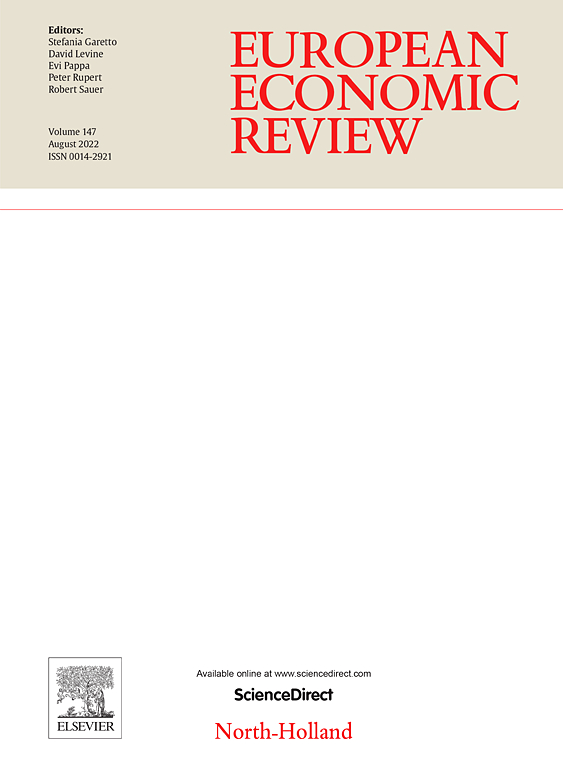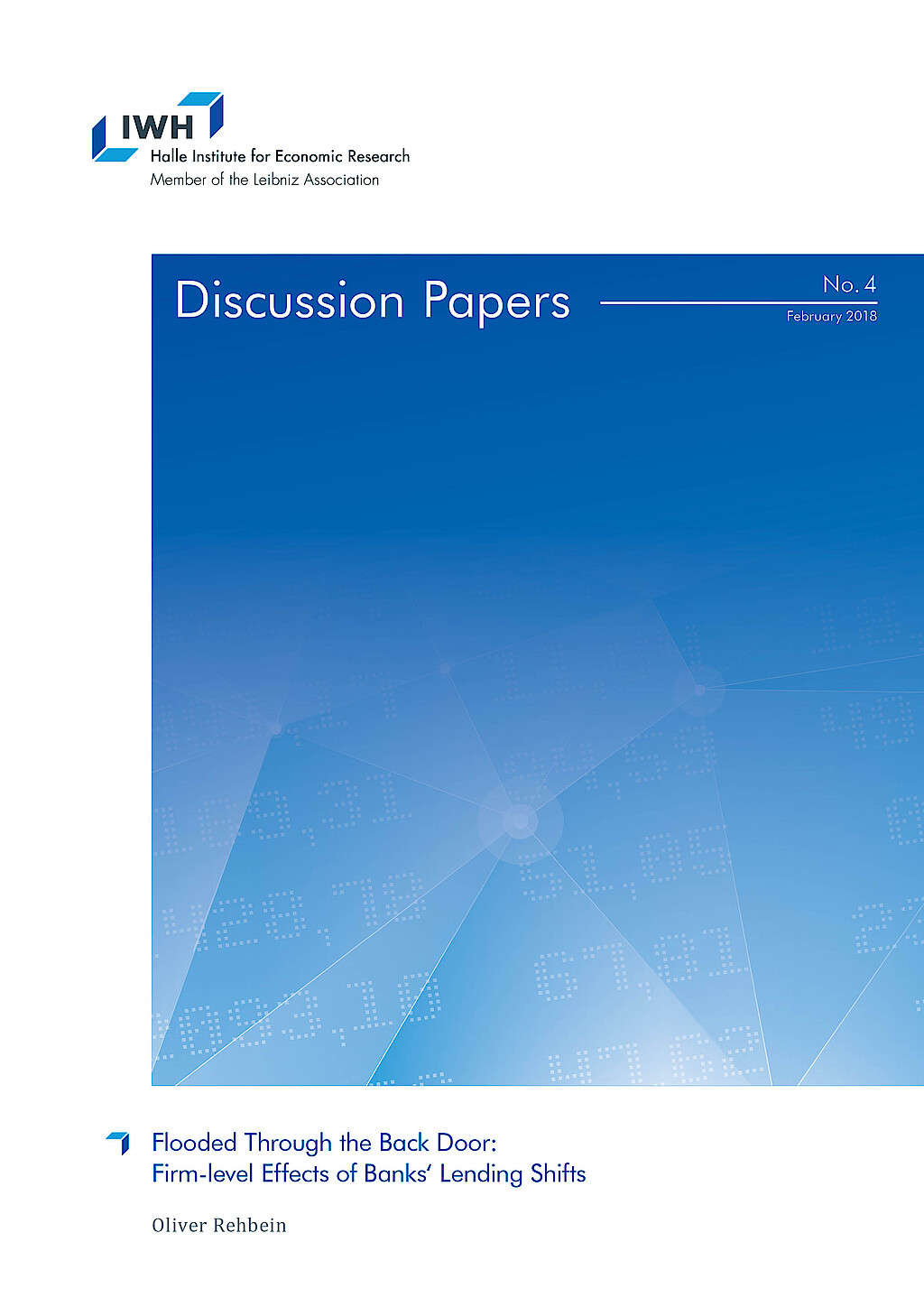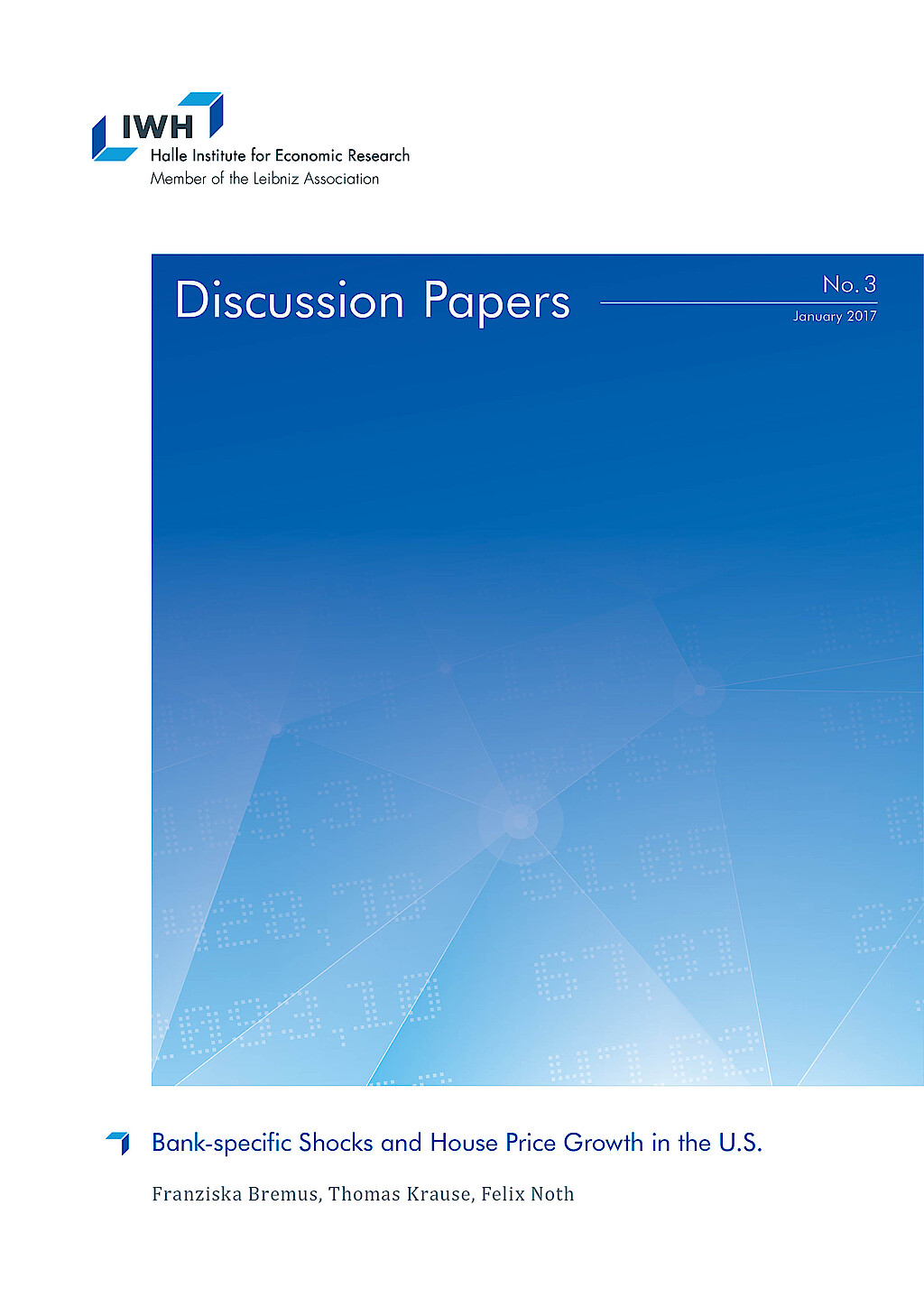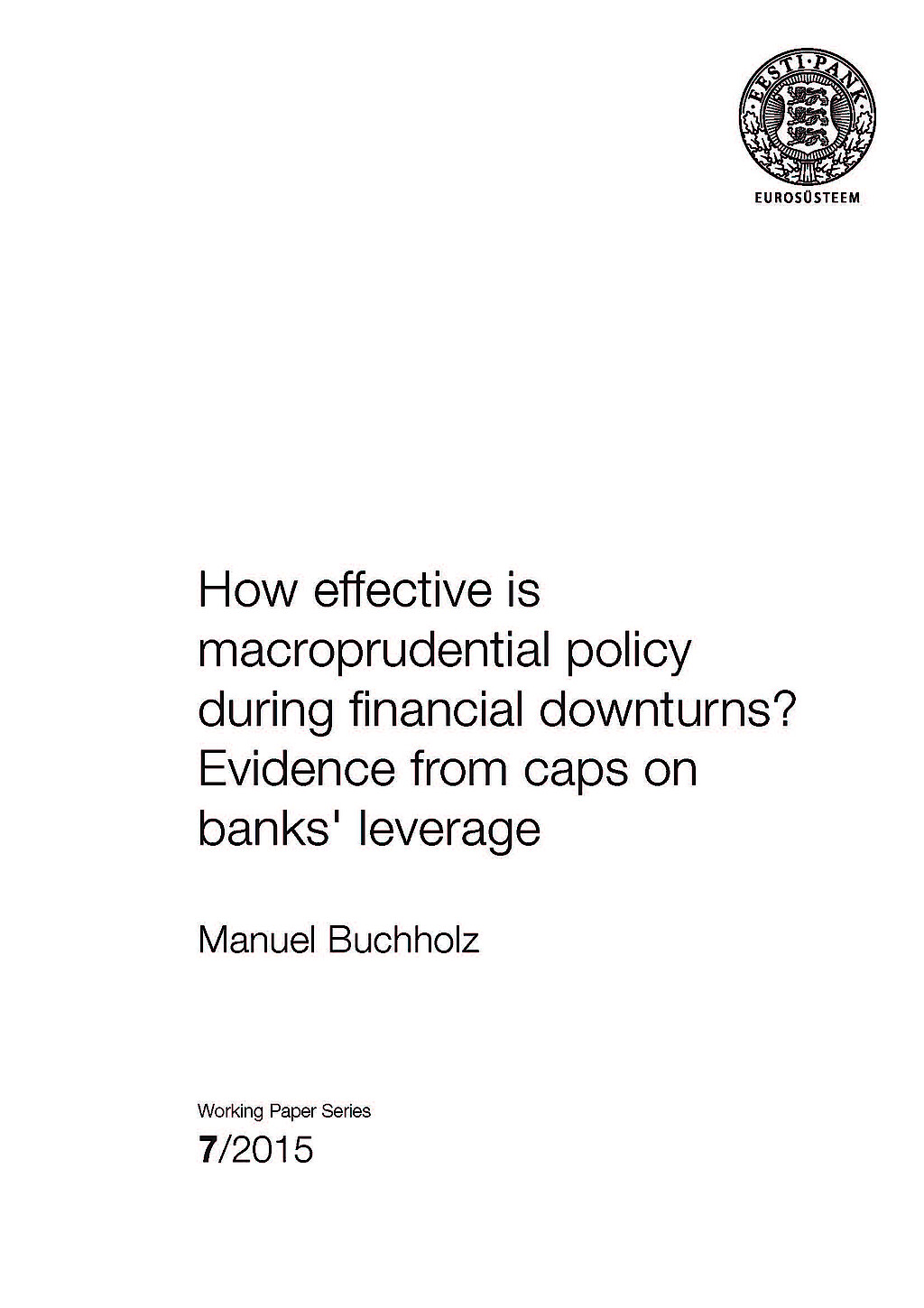Anpassungsfähigkeit und Resilienz des Finanzsystems
Diese Forschungsgruppe untersucht kritische Aspekte der Anpassungsfähigkeit und Widerstandsfähigkeit von Finanzsystemen. Sie analysiert die Auswirkungen von Naturkatastrophen auf Finanzsysteme, die Auswirkungen politischer Präferenzen für die grüne Transformation und die Bedeutung von Kultur in den Volkswirtschaften.
Forschungscluster
Finanzresilienz und RegulierungIhr Kontakt

- Abteilung Finanzmärkte
PROJEKTE
08.2022 ‐ 07.2025
OVERHANG: Schuldenüberhang und grüne Investitionen – die Rolle von Banken für den klimafreundlichen Umgang mit emissionsintensiven Anlagenvermögen
Bundesministerium für Bildung und Forschung (BMBF)
Ziel von OVERHANG ist es, die Rolle von Banken für den klimafreundlichen Umgang mit emissionsintensiven Anlagevermögen zu untersuchen. Hierdurch sollen politikrelevante Erkenntnisse zu Finanzregulierung, staatlich kontrollierter Kreditvergabe und Finanzstabilität identifiziert sowie eine Sensibilisierung der verschuldeten Akteurinnen und Akteuren erreicht werden.
Das Projekt wird vom Bundesministerium für Bildung und Forschung (BMBF) finanziert.
01.2015 ‐ 12.2019
Interactions between Bank-specific Risk and Macroeconomic Performance
Deutsche Forschungsgemeinschaft (DFG)
07.2016 ‐ 12.2018
Relationship Lenders and Unorthodox Monetary Policy: Investment, Employment, and Resource Reallocation Effects
Leibniz-Gemeinschaft
We combine a number of unique and proprietary data sources to measure the impact of relationship lenders and unconventional monetary policy during and after the European sovereign debt crisis on the real economy. Establishing systematic links between different research data centers (Forschungsdatenzentren, FDZ) and central banks with detailed micro-level information on both financial and real activity is the stand-alone proposition of our proposal. The main objective is to permit the identification of causal effects, or their absence, regarding which policies were conducive to mitigate financial shocks and stimulate real economic activities, such as employment, investment, or the closure of plants.
Referierte Publikationen

Phonebanking
in: European Economic Review, Nr. 2, 1995
Abstract
In a two-stage game, we study under what conditions banks offer phonebanking (first stage). In the second stage, they are competitors in the market for deposits. Offering the phone option creates two opposing effects. The first is a demand effect as depositors strictly prefer to manage some of their financial transactions by phone. The second (strategic) effect is that competition is increased as transaction costs are lowered. Universal phonebanking prevails when the demand effect dominates the strategic effect. Specialization can occur in that one bank offers the phone option while the other does not.
Arbeitspapiere

Flooded Through the Back Door: Firm-level Effects of Banks‘ Lending Shifts
in: IWH Discussion Papers, Nr. 4, 2018
Abstract
I show that natural disasters transmit to firms in non-disaster areas via their banks. This spillover of non-financial shocks through the banking system is stronger for banks with less regulatory capital. Firms connected to a disaster-exposed bank with below median capital reduce their employment by 11% and their fixed assets by 20% compared to firms in the same region without such a bank during the 2013 flooding in Germany. Relationship banking and higher firm capital also mitigate the effects of such negative cross-regional spillovers.

Bank-specific Shocks and House Price Growth in the U.S.
in: IWH Discussion Papers, Nr. 3, 2017
Abstract
This paper investigates the link between mortgage supply shocks at the banklevel and regional house price growth in the U.S. using micro-level data on mortgage markets from the Home Mortgage Disclosure Act for the 1990-2014 period. Our results suggest that bank-specific mortgage supply shocks indeed affect house price growth at the regional level. The larger the idiosyncratic shocks to newly issued mortgages, the stronger is house price growth. We show that the positive link between idiosyncratic mortgage shocks and regional house price growth is very robust and economically meaningful, however not very persistent since it fades out after two years.

How Effective is Macroprudential Policy during Financial Downturns? Evidence from Caps on Banks' Leverage
in: Working Papers of Eesti Pank, Nr. 7, 2015
Abstract
This paper investigates the effect of a macroprudential policy instrument, caps on banks' leverage, on domestic credit to the private sector since the Global Financial Crisis. Applying a difference-in-differences approach to a panel of 69 advanced and emerging economies over 2002–2014, we show that real credit grew after the crisis at considerably higher rates in countries which had implemented the leverage cap prior to the crisis. This stabilising effect is more pronounced for countries in which banks had a higher pre-crisis capital ratio, which suggests that after the crisis, banks were able to draw on buffers built up prior to the crisis due to the regulation. The results are robust to different choices of subsamples as well as to competing explanations such as standard adjustment to the pre-crisis credit boom.

Monetary Policy under the Microscope: Intra-bank Transmission of Asset Purchase Programs of the ECB
in: IWH Discussion Papers, Nr. 9, 2015
Abstract
With a unique loan portfolio maintained by a top-20 universal bank in Germany, this study tests whether unconventional monetary policy by the European Central Bank (ECB) reduced corporate borrowing costs. We decompose corporate lending rates into refinancing costs, as determined by money markets, and markups that the bank is able to charge its customers in regional markets. This decomposition reveals how banks transmit monetary policy within their organizations. To identify policy effects on loan rate components, we exploit the co-existence of eurozone-wide security purchase programs and regional fiscal policies at the district level. ECB purchase programs reduced refinancing costs significantly, even in an economy not specifically targeted for sovereign debt stress relief, but not loan rates themselves. However, asset purchases mitigated those loan price hikes due to additional credit demand stimulated by regional tax policy and enabled the bank to realize larger economic margins.

Corporate Governance Structures and Financial Constraints in Multinational Enterprises – An Analysis in Selected European Transition Economies on the Basis of the IWH FDI Micro Database 2013 –
in: IWH Discussion Papers, Nr. 3, 2015
Abstract
In our analysis, we consider the distribution of decision power over financing and investment between MNEs’ headquarters and foreign subsidiaries and its influence on the foreign affiliates’ financial restrictions. Our research results show that headquarters of multinational enterprises have not (yet) moved much decision power to their foreign subsidiaries at all. We use data from the IWH FDI Micro Database which contains information on corporate governance structures and financial restrictions of 609 enterprises with a foreign investor in Hungary, Poland, the Czech Republic, Slovakia, Romania and East Germany. We match data from Bureau van Dijk’s AMADEUS database on financial characteristics. We find that a high concentration of decision power within the MNE’s headquarter implicates high financial restrictions within the subsidiary. Square term results show, however, that the effect of financial constraints within the subsidiary decreases and finally turns insignificant when decision power moves from headquarter to subsidiary. Thus, economic policy should encourage foreign investors in the case of foreign acquisition of local enterprises to leave decision power within the enterprise and in the case of Greenfield investment to provide the newly established subsidiaries with as much power over corporate governance structures as possible.



















